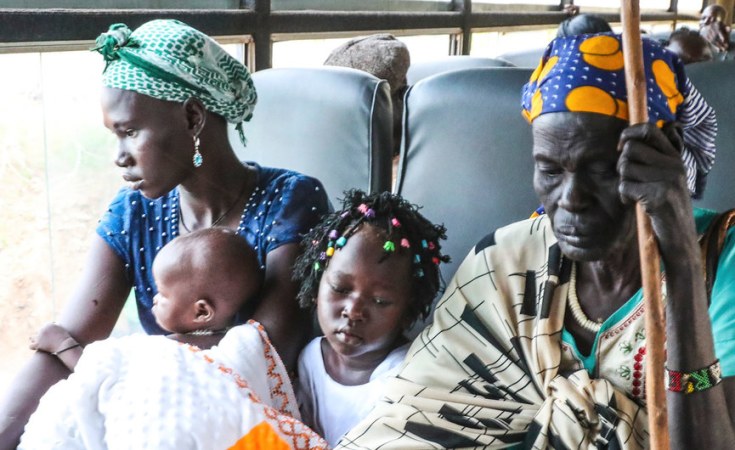Juba — A surprise government shakeup by South Sudan's President Salva Kiir this month has raised new concerns about the country's stability. The opposition in Juba's transitional unity government has called on the president to reverse the moves or risk the country's fragile peace. Vice President Riek Machar says if Kiir does not heed the demand, his "options are open."
When Kiir made changes to the Cabinet, just over a week ago, most South Sudanese just took it as one of the many decrees from the head of state usually read out on state television.
But for Riek Machar, Kiir's political rival and now his vice president, Kiir's firing of Defense Minister Angelina Teny was a violation of the 2018 peace deal that ended South Sudan's civil war. Teny is also Machar's wife.
"Bringing peace in South Sudan is not a one-man show," Puok Baluang, press secretary in Marchar's office, said. "It is a collective effort of all South Sudanese and parties. We look forward to seeing a positive response from the president to revoke the decree and the presidential order and to commit himself, and his party, to the implementation of the peace agreement in letter and spirit."
The minister of Cabinet affairs, Martin Elia Lomuro, said Kiir's restructuring was done in good faith, and said the move was made for "administrative purposes."
The Reconstituted Joint Monitoring and Evaluation Commission monitors the fragile peace in South Sudan. Major General Charles Gituai, the RJMEC interim chairperson, said Kiir and Machar must find a solution to the latest standoff.
"We urge the parties to observe the letter and spirit of the revitalized agreement on the resolution of the conflict in South Sudan," Gituai said, "which is founded on collaboration ... and agreement between the parties."
Earlier this week, Sudan, the current chair of east African regional bloc IGAD, the Intergovernmental Authority on Development, and Ethiopia sent a high-level delegation to Juba to mediate the stalemate.
Abraham Kuol, an associate professor of political science at the University of Juba, said something must be done.
"Looking at the current political situation that the country is in, I could say that this is a situation that has put the public to panic because we have seen into it that the people of South Sudan have got serious memories of what happened in 2016," Kuol said.
That year, the civil war appeared to be winding down but a political quarrel between Kiir and Machar led to the eruption of violence between the two leaders' presidential guards, drawn from the two largest ethnic groups in South Sudan.
The war was reignited and lasted another two years.
Analysts say the president would be better served by making decisions like Cabinet appointments through consensus with Machar.
Cabinet affairs minister Lomuro maintains that President Kiir didn't bend any rules.
"As commander-in-chief, he realizes that the time scale for implementation of the roadmap is very tight, yet the ministry of defense is one of those ministries that is fundamental to provide the ground for the establishment of the professional security sector," Lomuro said. "So he wants to take charge so that when he gives orders, no one will stop doing what he says should be done."
Analyst Abraham Kuol said the peace deal is in jeopardy.
"The only thing that would make this peace to hold is if the opposition have decided to be just only beggars and not to express their rights so that they will only be receiving what they have been already given," Kuol said. "But if they express and protest in the name of getting their own right ... the scenario of 2016 can repeat itself."
Civil activists are now urging Kiir and Machar to put aside their differences and work together to achieve peace.
The term of the current unity government was originally set to expire in 2022. Last year, all parties to the agreement extended the mandate by a further two years until December 2024, when the country is set to hold its first general election.


